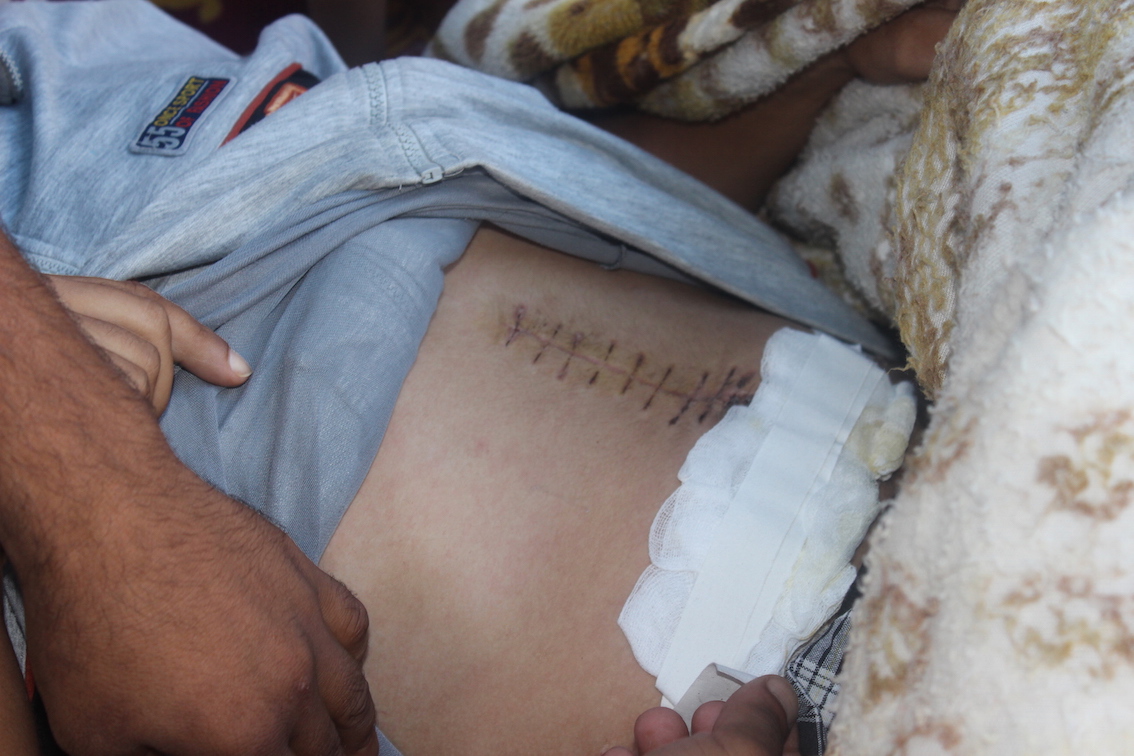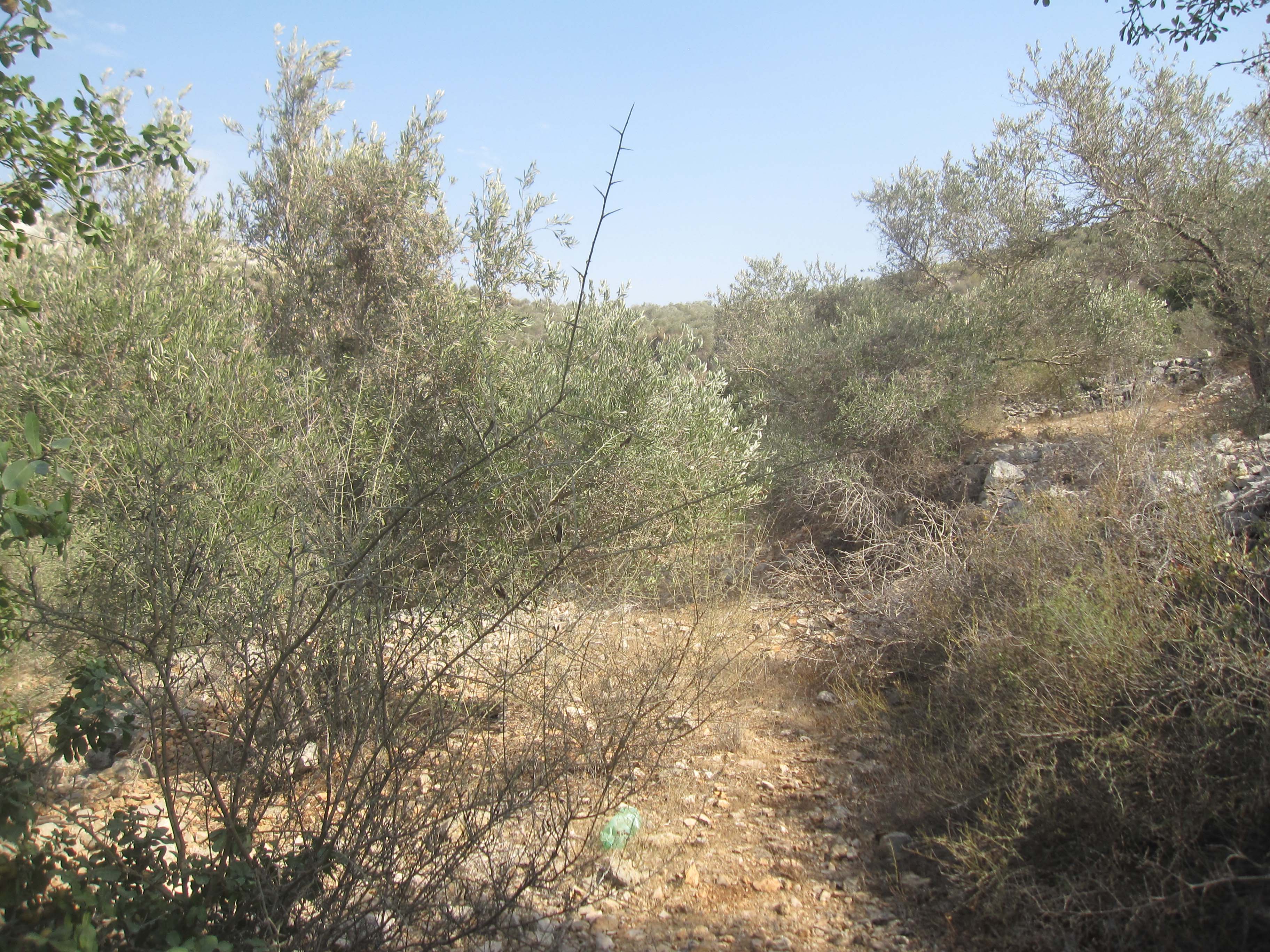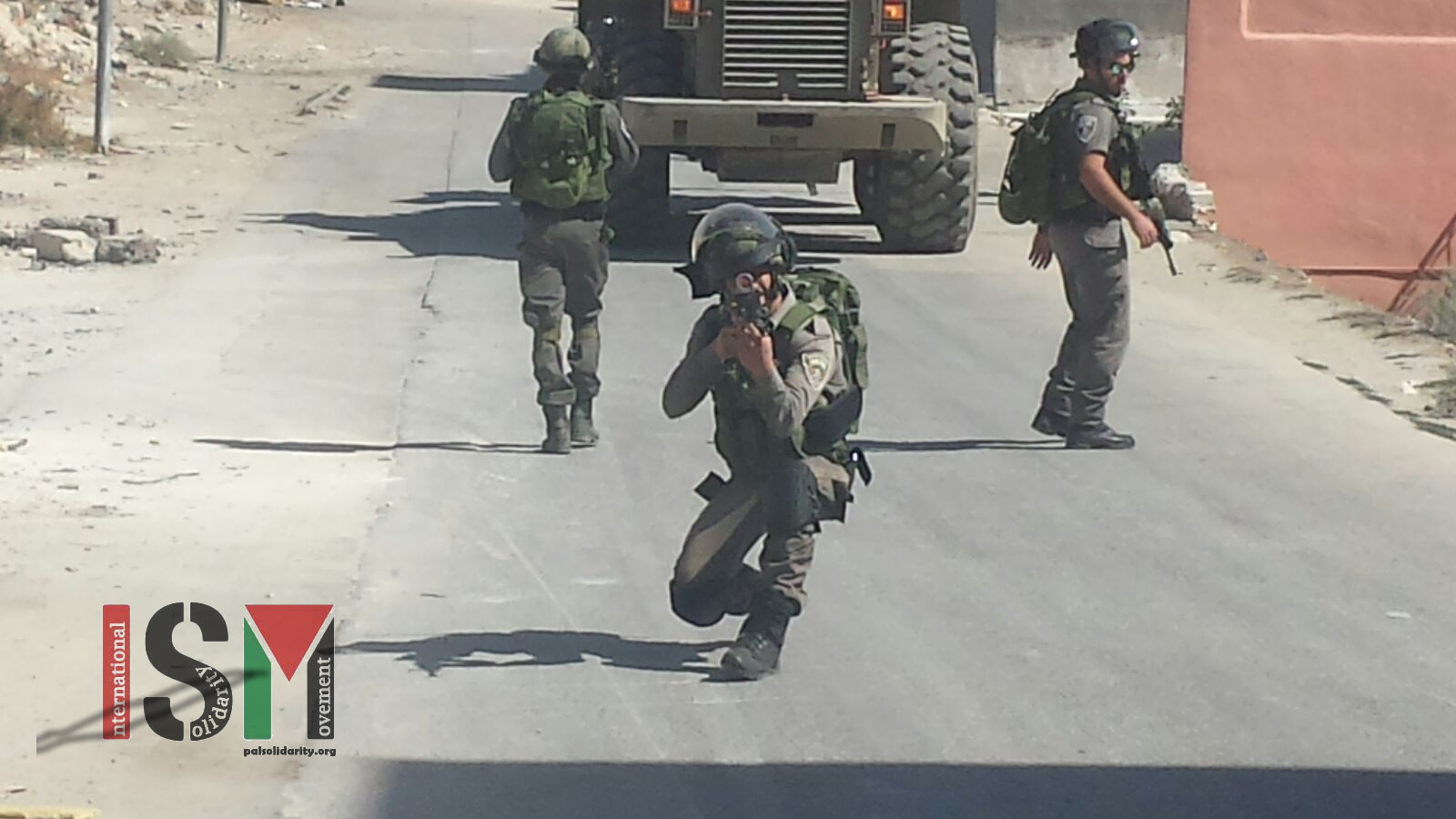Category: Features
-
Israeli Forces Shoot a Palestinian Fisherman for the Third Time
24th October 2016 | International Solidarity Movement, Gaza-team | Gaza, occupied Palestine On Sep 5th, 2016, the Gaza fisherman, Ahmed Mohamed Zaied. 32 years of age, was fishing along with his friend using a hasaka (small boat). They were fishing closer than 1.5 miles in the Palestinian territorial waters, in the northern part of the…
-
Olive harvest next to the illegal settlements in Bruqin
23rd October 2016 | International Solidarity Movement, Ramallah-team | Bruqin, occupied Palestine On October 21st, an ISM-team joined farmers in the village of Bruqin, Salfit district, for the olive harvest. The family’s fields are occupied by an illegal Israeli settlement and they are denied access to their land by the Israeli military except during the…
-
Roadblocks, stun grenades and settler aggression: another Jewish holiday in occupied al-Khalil
23rd October 2016 | International Solidarity Movement, al-Khalil team | Hebron, occupied Palestine The events of Tuesday the 18th of October began to unravel as my friend and I accompanied school children through an Israeli checkpoint (Salaymeh) as they made their way home that afternoon. On our return journey from the school we noticed a…



